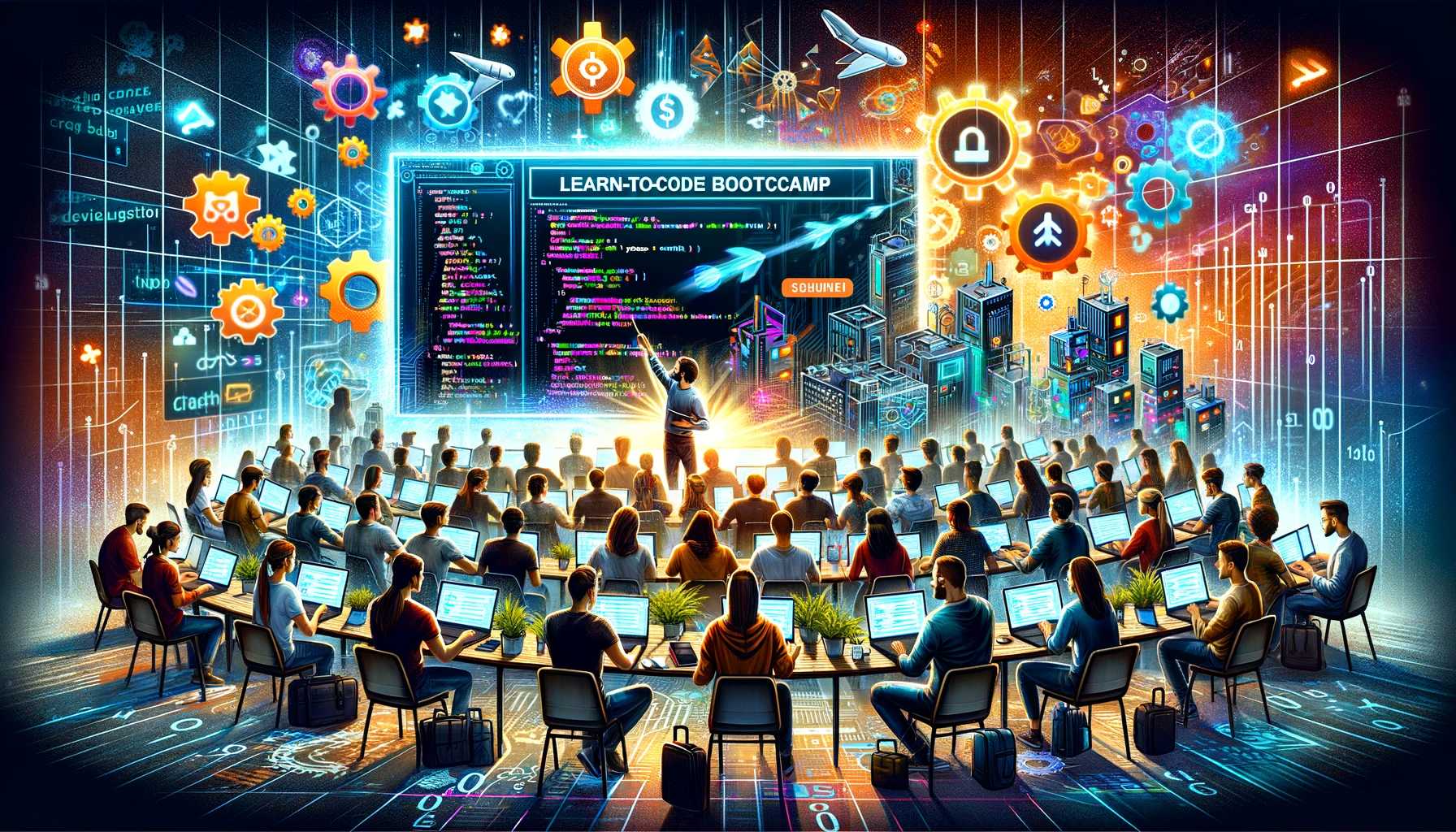Harnessing the Power of Learn-to-Code Bootcamps: Building Tech Skills in Your Organization
In today's fast-paced digital landscape, the demand for tech skills is greater than ever. From software development to data analysis, proficiency in coding and technical disciplines is increasingly essential for organizations looking to stay competitive and innovative. However, acquiring and maintaining these skills can be a daunting task, especially for non-technical employees. That's where learn-to-code bootcamps come in. In this blog post, we'll explore how organizations can harness the power of learn-to-code bootcamps to build tech skills and drive success.
What Are Learn-to-Code Bootcamps?
Learn-to-code bootcamps are intensive, immersive training programs designed to teach participants the fundamentals of programming and technical skills in a condensed timeframe. These bootcamps typically cover a range of topics, including programming languages such as Python, JavaScript, and Ruby, as well as web development, data analysis, and software engineering concepts. Bootcamps may be offered in-person or online and often feature hands-on projects, real-world case studies, and expert instruction from industry professionals.
Benefits of Learn-to-Code Bootcamps for Organizations
Upskilling and Reskilling: Learn-to-code bootcamps provide employees with the opportunity to upskill or reskill in high-demand technical areas, equipping them with the knowledge and expertise needed to excel in their roles or transition into new ones.
Improved Problem-Solving Abilities: Coding requires logical thinking, problem-solving skills, and attention to detail—all of which are valuable assets in any role. By participating in a learn-to-code bootcamp, employees can enhance their problem-solving abilities and apply these skills to their everyday work.
Increased Innovation and Creativity: Learning to code empowers employees to think creatively and develop innovative solutions to business challenges. By fostering a culture of creativity and experimentation, organizations can drive innovation and stay ahead of the curve in a rapidly evolving marketplace.
Enhanced Collaboration and Communication: Tech skills are increasingly important for effective collaboration and communication across teams and departments. By investing in learn-to-code bootcamps, organizations can bridge the gap between technical and non-technical employees, fostering better understanding and collaboration within the organization.
Boosted Employee Morale and Engagement: Providing employees with opportunities for professional development and skill-building demonstrates a commitment to their growth and success. Engaged and motivated employees are more likely to contribute positively to the organization and remain loyal in the long run.
How to Implement a Learn-to-Code Bootcamp in Your Organization
Assess Organizational Needs: Start by identifying the specific technical skills gaps and areas of expertise that are most critical for your organization. Determine the goals and objectives of the learn-to-code bootcamp and how it aligns with your overall business strategy.
Select the Right Bootcamp Provider: Research and evaluate different learn-to-code bootcamp providers to find one that offers a curriculum and teaching approach that aligns with your organization's needs and objectives. Consider factors such as program length, format (in-person vs. online), instructor qualifications, and student outcomes.
Customize the Curriculum: Work with the bootcamp provider to customize the curriculum to address the specific technical skills and competencies needed within your organization. Tailor the content and learning materials to reflect the tools, technologies, and workflows used in your industry or sector.
Promote Participation and Engagement: Encourage employees to participate in the learn-to-code bootcamp by highlighting the benefits and relevance of acquiring technical skills. Create a supportive and inclusive learning environment that fosters collaboration, teamwork, and peer-to-peer learning.
Provide Ongoing Support and Resources: Offer ongoing support and resources to help employees succeed in the bootcamp and apply their newfound skills in their roles. This may include access to mentors, online tutorials, coding challenges, and opportunities for continued learning and growth.
Measure Success and ROI: Evaluate the impact of the learn-to-code bootcamp on employee performance, productivity, and job satisfaction. Track key metrics such as completion rates, skills acquisition, and project outcomes to assess the return on investment (ROI) and identify areas for improvement.
Real-World Success Stories
To illustrate the effectiveness of learn-to-code bootcamps in building tech skills within organizations, let's explore a few real-world success stories:
Company X: Company X, a software development firm, implemented a learn-to-code bootcamp for non-technical employees to improve cross-departmental collaboration and communication. As a result, employees gained a better understanding of technical concepts and were able to contribute more effectively to project teams, leading to improved productivity and client satisfaction.
Organization Y: Organization Y, a marketing agency, offered a learn-to-code bootcamp to upskill employees in data analysis and web development. Armed with new technical skills, employees were able to analyze marketing data more effectively, optimize digital campaigns, and create interactive web experiences for clients, resulting in increased revenue and client retention.
Startup Z: Startup Z, a technology startup, provided a learn-to-code bootcamp as part of its employee onboarding process. By equipping new hires with foundational coding skills, the company was able to accelerate the development of its software products and bring new features to market faster, gaining a competitive edge in the industry.
Conclusion
In conclusion, learn-to-code bootcamps offer a powerful and effective way for organizations to build tech skills and drive success in today's digital economy. By upskilling and reskilling employees, fostering innovation and creativity, and enhancing collaboration and communication, organizations can position themselves for long-term growth and competitiveness. By investing in learn-to-code bootcamps, organizations can empower their employees to thrive in an increasingly technical and interconnected world, driving positive outcomes and driving business success.









